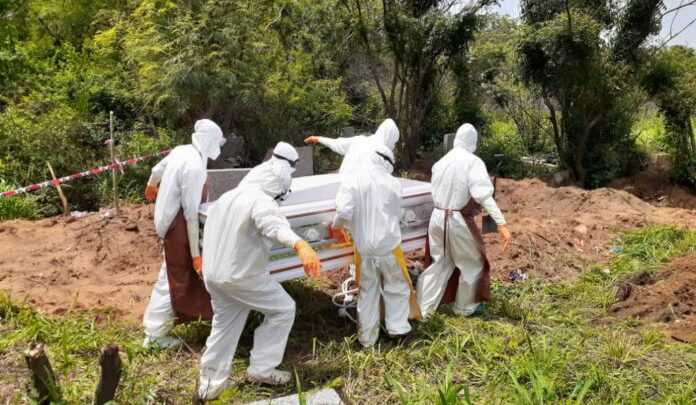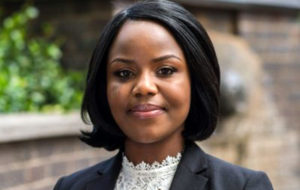
The Bulawayo City Council (BCC) has revealed that women are testing positive for Covid-19 at a higher rate than men although data shows that more men are succumbing to the respiratory disease due to late treatment-seeking behaviour.
Speaking during a stakeholder engagement meeting, Friday, on Covid-19 response in Bulawayo hosted by Women Institute for Leadership Development (WILD), BCC senior health promotion officer, Sitshengisiwe Siziba revealed that women contribute 53 percent of Covid-19 cases whilst men are at 47 percent.
“In terms of the distribution of Covid-19 cases by sex, most our cases are actually the females which are at 53 percent and then the males at 47 percent and even in our institutions with regards to admissions most of our cases that are admitted are mainly females,” said Siziba.
“But when it comes to death it’s more of the males that are dying than females maybe it could be attributed to the late treatment-seeking behaviour as I said earlier on that most of our cases really come late to the Institutions, so much that for them to get help it will be a bit late, so that means females really have a challenge.”
Siziba said it was a general trend that men delay in seeking treatment for various ailments than their female counterparts.
“Even if we look at other conditions that we have in the City despite the Covid-19, the male health-seeking behaviour is quite low, even when we look at the number of cases that come to our health facilities on all conditions, we have more females than males and most of the time the males actually seek treatment a bit late,” she said.
Siziba attributed the possible drivers of Covid –19 infections to societal roles of women as caregivers, which exposes them to the virus.
“The possible drivers to Covid-19 infections I am sure you can come up with more is because of that as women we are generally caregivers. When anyone is sick at home the person who actually takes care of the person who is not well is usually the woman, so as a result that exposes them to the infection,” said Siziba.
“The second issue is that the issue of livelihoods supported activities, I am sure if you go round, most of our activities with regards to livelihood, we are mainly looking at women also, even if you go to the flea market, there are women, vending its women, so as a result really they are more exposed than our male counterparts.”
She added that cultural practices contribute to the infections as women are expected to do most of the house chores.
“Then there is also the issue of cultural practices where women are supposed to do almost everything though men are also coming up to support women in our culture we know that women are the ones who are actually caregivers, they are supposed to do everything and as you know that in the City we also have been having a challenge of water, so whenever there is no water, women are the ones who actually go and look for water and once there are those gatherings then that means the chances of them getting the infection is quite high.”
In terms of cases, Siziba, noted Northern suburbs account for 54, 3 percent of the cases.
“Emakhandeni district has 25, 2 percent, Nkulumane 20, 2 percent so that means the bulk of our cases are actually in the Northern suburbs, with regards to the response our focus is mainly on Northern suburbs where we are getting the majority of these cases,” she said.
“Our top six suburbs with most cases are: the first one is Suburbs (681 cases as of last week) followed Emganwini and Nketa both having 152 cases, Cowdray Park and Nkulumane have 124 cases, Pumula and the City Center with 103 cases.”
Nkulumane suburb has recorded the highest number of fatalities with 13 so far, followed by Lobengula with 11 deaths, Entumbane has eight deaths, Cowdray Park seven deaths and Suburbs has recorded five deaths, the same number of fatalities recorded in Pumula.






